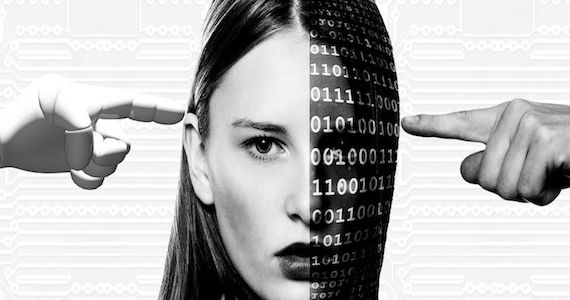The development of artificial intelligence (AI) is one of the great milestones of recent years. It has changed our way of relating to technology and will be the basis for the fourth industrial revolution where robotics will gain ground compared to humans. Autonomous cars and smartphones, as examples of AI, not only make our lives more comfortable but we can talk to them and interact. Experts are considering how this transformation influences our mental processes and how it will affect the lives of human beings and their way of behaving and of thinking.
Science has had difficulties in portraying this phenomenon that advances by leaps and bounds, but there are some concrete points on which a consensus has been reached. Many studies have already shown that constant interactions with technology are changing our brain—they influence the information we remember, our sense of physical orientation and even the things that make us happy.

Our mobile phones and tablets have been converted into systems for the consultation and storage of information, which allows us to dump data onto our memory cards and we forget to save it in our head. That helps us to have the data more at hand, but it takes away the obligation of having to retain information. Every time we try to remember a fact, the path in our brain that leads to it is strengthened, paving the way for us to return to it in the future.
Don’t ask Siri
But if, instead of making that effort, we ask Siri—virtual assistants are one of the most popular showpieces of artificial intelligence in recent years—we do not have to do that memory exercise and little by little the mechanisms of information retrieval become obstructed. In 2011, a group of researchers from Harvard University had already named this phenomenon the Google Effect. This syndrome causes us to tend to forget information or where we can get it.
The influence of intelligent technology on the sense of orientation is another aspect on which the experts agree. Instead of checking the map and designing a route before leaving home, people begin to rely entirely on the GPS of their mobile phones. A recent study by University College London shows that using GPS is weakening the brain’s ability to orient itself and that web browsers cause the brain areas dedicated to spatial orientation and navigation to reduce their activity.

These two points may lead one to think that artificial intelligence will impair our cognitive development. However, on the other hand, other research has shown that AI will allow humans to use their brains more creatively, as bots will soon automate the repetitive tasks that workers now do. The development of robotics will leave more time for humans to invest in a more contemplative life, leisure and culture.
Exploit our humane abilities
In this way, artificial intelligence will allow us to further develop abstract thinking, imagination and intuition. “AI will push us to access the most complex parts of our minds. When routine work is automated, we can exploit our most humane abilities. The future of society is based on individuals who access superior reasoning and can use complex skills to solve problems,” explains Chris Brauer, a professor at the University of London.
Some studies suggest that AI will promote the development of all capabilities that add value to machines. It will also “increase safety and optimize work tools, but it cannot replace the human mind when judgment and subjectivity are the distinguishing value,” says Germán de la Fuente, Managing Partner of Deloitte, one of the main auditors that has recently systematically introduced robotics into the creation of reports.
In 2015, the three most sought after job skills were: understanding complex problems, coordination with others and the management of teams, according to the study The Future of Jobs, presented last year at the World Economic Forum in Davos. But, according to the same report, as the development of AI progresses, the demands change, and in three years companies will give more importance to critical thinking and creativity.
Comments on this publication